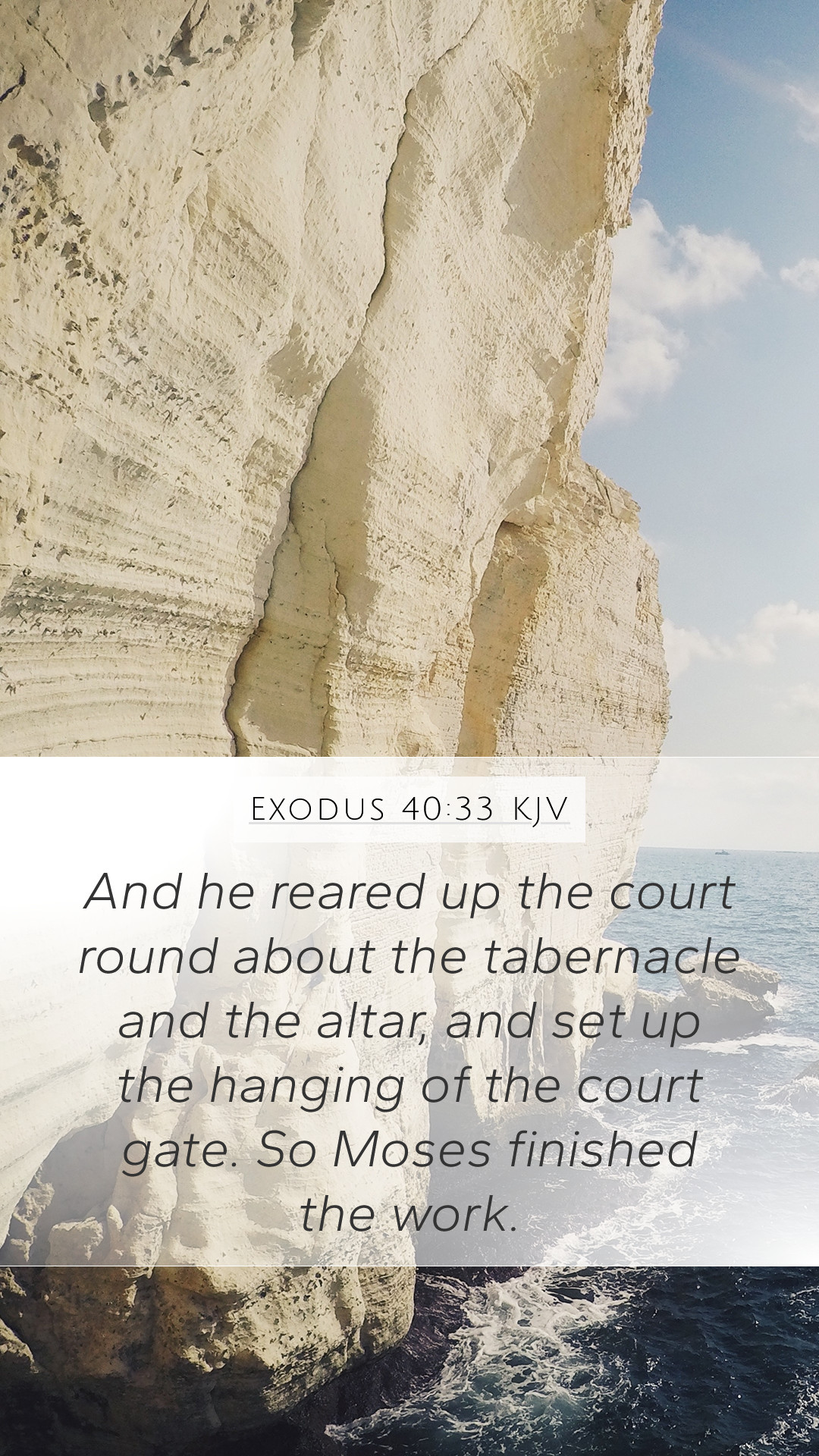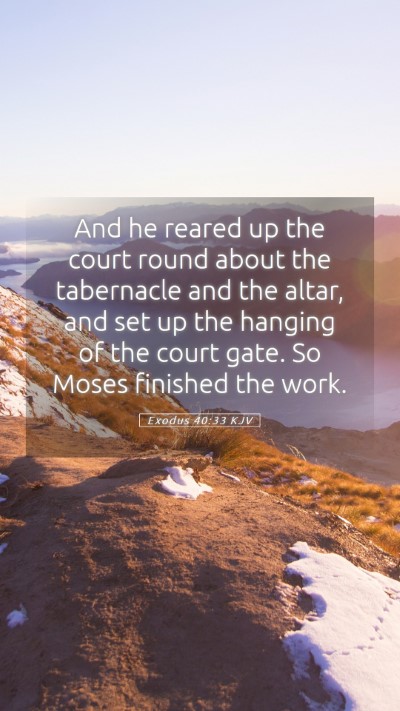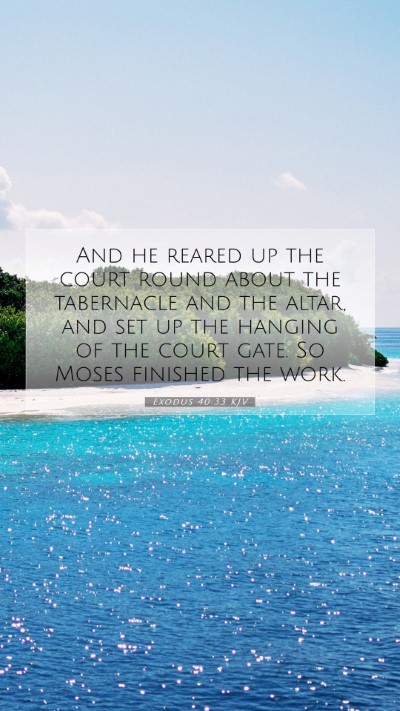Understanding Exodus 40:33
Exodus 40:33 states, "And he reared up the court round about the tabernacle and the altar, and set up the hanging of the court gate. So Moses finished the work." This verse marks the completion of the Tabernacle's construction, a pivotal event in the Israelites’ journey and relationship with God. Below, we delve into the meanings, interpretations, and significance of this verse through various public domain commentaries.
Bible Verse Meanings
This verse encapsulates the meticulous work of Moses and the Israelites, emphasizing their obedience to God’s command. The completion signifies not just the end of a physical structure, but the establishment of a sacred space where God would dwell among His people. The following analyses highlight key points from noted commentaries:
Commentary Insights
-
Matthew Henry: Henry notes that the completion of the Tabernacle was a momentous occasion, symbolizing the divine presence among the people. He emphasizes that the work of constructing the Tabernacle was done with great care and collective effort, and Moses, as a faithful servant, ensured every detail was attended to according to God’s specifications.
-
Albert Barnes: Barnes remarks on the significance of Moses finishing the work, suggesting it represents fulfillment and dedication. He comments that the act of raising the court and setting up the gate reflects a broader theme of preparation for worship and God's holiness, indicating the Israelites' readiness to encounter God.
-
Adam Clarke: Clarke draws attention to the specific details noted in Moses' work, providing insight into the importance of the Tabernacle's arrangement. He implies that this meticulous work underscores the seriousness of approaching God's holiness and the necessity of order in divine worship.
Biblical Exegesis
In-depth analysis reveals that the phrase "So Moses finished the work" not only marks a physical completion but conveys a spiritual and communal fulfillment. The Tabernacle, a type of Christ, signifies how God desires to dwell with His people. The details surrounding its construction reflect God's intention for order, holiness, and accessibility to worship.
Significance within the Narrative
Exodus 40:33 serves as a culmination of years of wandering and signifies a transformative moment for the Israelites. The Tabernacle was central to their identity and worship, becoming a tangible sign of God’s covenant with them.
Application of Exodus 40:33
Understanding the essence of this verse encourages modern believers to consider the significance of worship spaces in their own lives. Just as Moses and the Israelites followed God’s instruction meticulously, today’s followers are called to honor the spaces where they encounter God, whether in communal worship or personal devotion.
Related Bible Verses
- Exodus 25:8: "And let them make me a sanctuary; that I may dwell among them." - This verse reveals God’s desire to be among His people.
- 1 Peter 2:5: "Ye also, as lively stones, are built up a spiritual house," - This connects to the idea of believers being a living Tabernacle.
- Hebrews 9:1-5: Discusses the earthly sanctuary, providing insight into its spiritual significance and foreshadowing of Christ.
Further Studies and Reflections
The verse encourages believers to engage in Bible study insights regarding the importance of community and dedicated spaces for worship. Reflection on how God desires communion with His creation can be valuable in personal and group Bible study settings.
Bible Study Tools and Resources
- Bible study guides focusing on the Levitical laws and the Tabernacle’s significance.
- Online Bible study forums for discussing the deeper implications of Old Testament narratives.
- Bible study courses that explore worship in the Old and New Testaments.
Conclusion
Exodus 40:33 is not just a historical account but a profound statement about God's desire to dwell with His people. The completion of the Tabernacle sets a precedent for worship and divine interaction that resonates throughout the Bible. Engaging with this verse through Bible verse commentaries enriches one's understanding of Scripture and enhances personal faith journeys.


